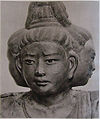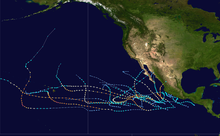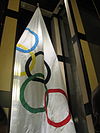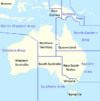Wikipedia:Featured Topics

A featured topic is a collection of inter-related articles in which at least half are featured articles or featured lists. The remaining articles must be at least good quality. A featured topic represents Wikipedia's best work by thoroughly covering all parts of that topic through several high-quality articles that share a similar structure and are well-linked with each other. To become featured, a topic must meet a set of criteria.
Featured topics are nominated and discussed at the Wikipedia:Featured and good topic candidates page, where they are either accepted or rejected. Additions to existing featured topics are also discussed there. Do not add an article directly to a featured topic without nominating it first.
There are currently 186 featured topics that encompass 1,508 unique articles. There are 57 articles concurrently in two featured topics, 10 articles in a featured topic and a good topic, 7 articles in two featured topics and a good topic, and 2 articles in a featured topic and two good topics. There are 47 topics in which every article is featured if possible.
In the topic boxes below:
 indicates that the article is a featured article or featured list.
indicates that the article is a featured article or featured list. indicates that the article is a good article.
indicates that the article is a good article. indicates that the article is an audited article of limited subject matter or inherent instability.
indicates that the article is an audited article of limited subject matter or inherent instability. indicates that every article in the topic is featured if possible.
indicates that every article in the topic is featured if possible. indicates that the article has lost its good or featured article status, or was previously an audited article of limited subject matter, but no longer is (only in the case of a topic under grace period).
indicates that the article has lost its good or featured article status, or was previously an audited article of limited subject matter, but no longer is (only in the case of a topic under grace period).
Good content:
Featured and good topic tools:
- Art, architecture and archaeology
- Awards, decorations and vexillology
- Biology
- Chemistry and mineralogy
- Culture and society
- Education
- Food and drink
- Geography and places
- Geology, geophysics and meteorology
- History
- Law
- Literature and theatre
- Media
- Music
- Physics and astronomy
- Politics and government
- Religion, mysticism and mythology
- Sports and recreation
- Transport
- Video games
- Warfare
Art, architecture and archaeology
Awards, decorations and vexillology
Biology
Culture and society
Education
Geography and places
Geology, geophysics and meteorology
History
Law
Literature and theatre
Media
Music
Physics and astronomy
Politics and government
Religion, mysticism and mythology
Sports and recreation
Transport
 Business routes of U.S. Route 10 in Michigan
Business routes of U.S. Route 10 in Michigan Business routes of U.S. Route 23 in Michigan
Business routes of U.S. Route 23 in Michigan Business routes of U.S. Route 31 in Michigan
Business routes of U.S. Route 31 in Michigan U.S. Route 41 Business (Marquette, Michigan)
U.S. Route 41 Business (Marquette, Michigan) U.S. Route 41 Business (Ishpeming–Negaunee, Michigan)
U.S. Route 41 Business (Ishpeming–Negaunee, Michigan) Business routes of U.S. Route 127 in Michigan
Business routes of U.S. Route 127 in Michigan Business routes of U.S. Route 131
Business routes of U.S. Route 131


















































































































































